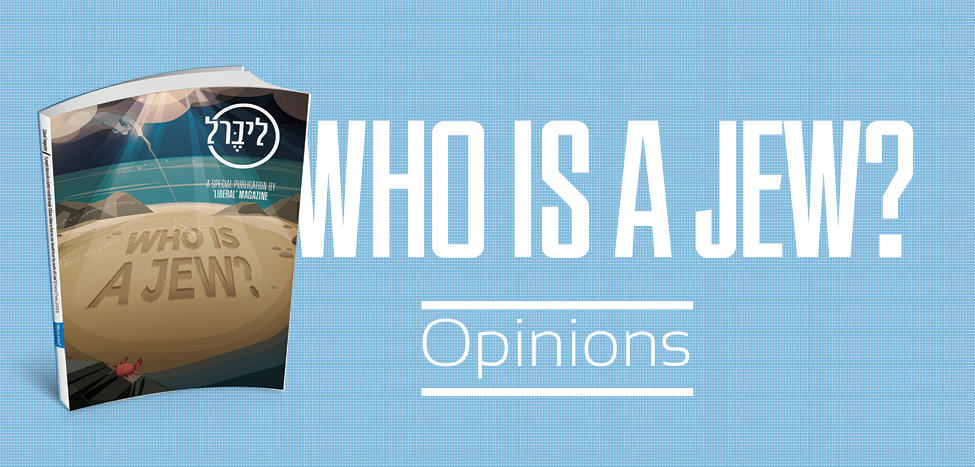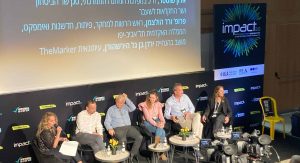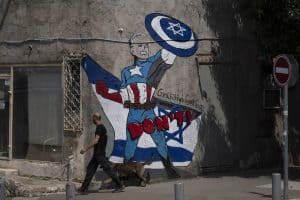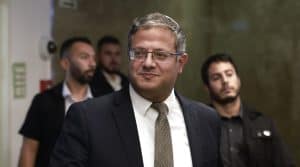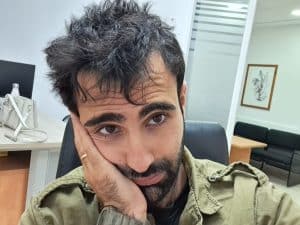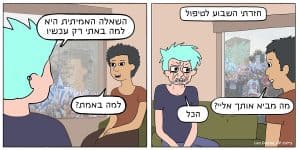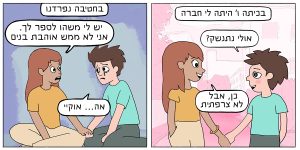Despite the ancient age of my people, we still have the identity of a teenager going through a painful puberty. Such a teenager, fighting with his parents for freedom and independence, wants to be like “everyone else” in his class. It is a well-known fact that in their eagerness to be like all “normal people”, Jews were very successful in absorbing other cultures and in becoming an inseparable (or so they thought) part of their language, culture and politics.
At the same time we – like many teenagers – were always ready to fight for our uniqueness, inimitability and individuality, or, in traditional language, for our chosenness. Of course each of us interprets the expression “chosen people” in his or her own way.
For some of us, it means a very special relationship with our God and our destiny, for others it is a natural curiosity, a quest for knowledge that drives us to study all our life, and for other still it is an undying hope to change the world for the better.
All these tendencies coexist quite peacefully in my soul (probably because, alas, I am no longer a teenager). I love to travel all over the world looking for new impressions, sights and sounds. Still, I feel more comfortable in my local synagogue than in a spectacular Catholic cathedral. Like a real cosmopolitan, I feel at home in New York, but my real home is here in Israel. According to the local classification, I am secular, but it is absolutely natural and even essntial for me to go to the Western Wall at least once a month.
My personal Jewish identity is the result of a long and sometimes painful process. It began with an unpleasant discovery when I was 7 years old. Out of curiosity, I stole a glance at the list of pupils in our teacher’s register. Almost all of my classmates were listed as Russians or Ukrainians, and only I appeared as “Jew”. I believe that this sudden realization of being a sort of exception and the loneliness felt at that moment became the starting point of my travels to what many people call now Jewish Peoplehood.
The public in Israel ,unfortunately, is not very familiar with this expression. It was coined by American Jewish philosopher and rabbi Mordecai Kaplan back in the 30’s, and many years later became very popular among Jewish professionals. When the meaning of “Jewish Peoplehood” was explained to me for the first time, I realized it was something I had intuitively believed in for many years.
For me, Jewish Peoplehood is a feeling of belonging to my people despite the fact that we are divided by geography and separated by faith, traditions and languages. Jewish Peoplehood is not only a feeling, but also a concept determining my understanding of our place in the world and my actions in this country and in this world.
Let us take the matter of Israeli – Diaspora relations. We have changed our attitude towards the phenomenon of Diaspora several times during the past two centuries. Once we considered it an exile, galut, punishment for our sins. Then some of us proclaimed that – with the era of enlightenment – we could live like brothers in the family of other peoples. Later, we realized that not all peoples see us as equal neighbors and brothers, and we put our faith in creating a Jewish state, negating the Diaspora and making it passé. However, it turned out that despite the existence of the State of Israel, not all the Jews rushed to live here – in particular from Western countries like the US, England, France and Belgium. So many of us said, fine, let them stay there, and we will live here, in Israel – after all, the world is becoming more tolerant and global.
However, suddenly we hear of pogroms in France, killings in Belgium and California and of long lines of prospective immigrants at Israeli consulates in Kiev and Moscow. As usual, our history and our destiny turned out to be much more unpredictable and ironic than any ideological construction.
I belive, therefore, that in the 21st century we, as a people, as a society, should not focus too much on ideological and political tactics, but rather on a broader and inclusive concept of building one people. We should concentrate on what unites us and not what divides us. What we need now is to educate ourselves and our children in the spirit of Jewish Peoplehood, to feel connected and responsible for the whole of Am Israel.
I am writing these lines on the eve of Yom Kippur. In a little while, the cars will stop driving by my home, there will be a moment of silence, soon to be replaced by the gleeful shouts of kids riding their bicycles. For me it is a beautiful and symbolic moment epitomizing the ability of our people to find a compromise. There is no law against driving on Yom Kippur, and yet out of respect for our traditions, on this day, the secular – like me – stay away from their vehicles. I feel wonderful peace and tranquility on this day. And I only wish that we could find more ways to bridge the gaps between us, to overcome our fights and conflicts, to feel as one people, no matter where we live, what we believe and what language we speak.
Leonid Nevzlin


